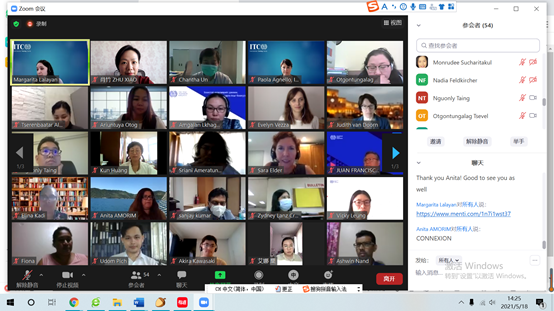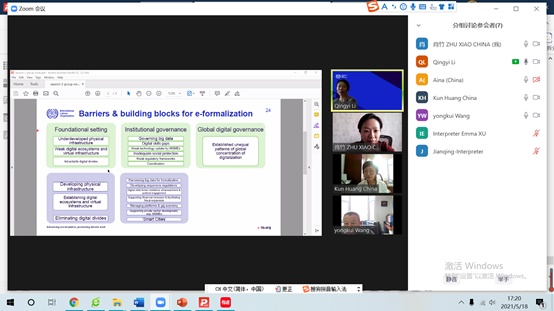From May 18 to 20, 2021, the International Labour Organization (ILO) organized a research forum on "Technology and the Transition from Informal to Formal Economy" as part of the South-South Knowledge Sharing Forum. Representatives from China, India, the Philippines, Cambodia, Mongolia, and Fiji, as well as over 20 officials and experts from the ILO, totaling more than 50 participants, attended the conference. Chinese representatives included Wang Yongkui, Deputy Director of the Macro Strategy Research Office of the Ministry of Human Resources and Social Security of the People’s Republic of China, Huang Kun, Deputy Director of the Legal Research Office of the Ministry of Human Resources and Social Security of the People’s Republic of China, and Su Aina, a staff member of the International Department of the China Enterprise Confederation. Professor Xiao Zhu, Vice Dean of the Law School at the CULR, was appointed by the All-China Federation of Trade Unions to represent the organization at the forum.

The three-day forum agenda was divided into five units: "E-formalization: Introduction and learning from other regions," "Barriers to e-formalization in the Asia-Pacific region, public policies, and principles," "Technology and public policies to incentivize formalization of economic units," "Technology, registration of transactions and enforcement of standards," and "e-Estonia: A holistic approach to a building a digital society." Deputy Director Huang Kun gave a presentation, "Using information technology to guarantee wage payment to construction workers in China", in the fourth session. Professor Xiao Zhu, on behalf of the Chinese delegation, presented a group discussion report in the second session, highlighting that China faces challenges such as uneven development of urban and rural data infrastructure and a digital skills gap in promoting the formalization of the informal economy and employment through digitization. The report emphasized the need to strengthen the digital ecosystem and big data management information systems, and focused on principles of fairness, inclusivity, security, and prudent regulation, and work on initiatives such as building data sharing platforms, enhancing internet infrastructure in rural and remote areas, improving the digital skills of lower-skilled groups, and enhancing the operational capabilities of small and medium-sized enterprises. The report also called for reflection on the relationship between informal employment and non-standard employment, as well as the boundaries of informal employment.

